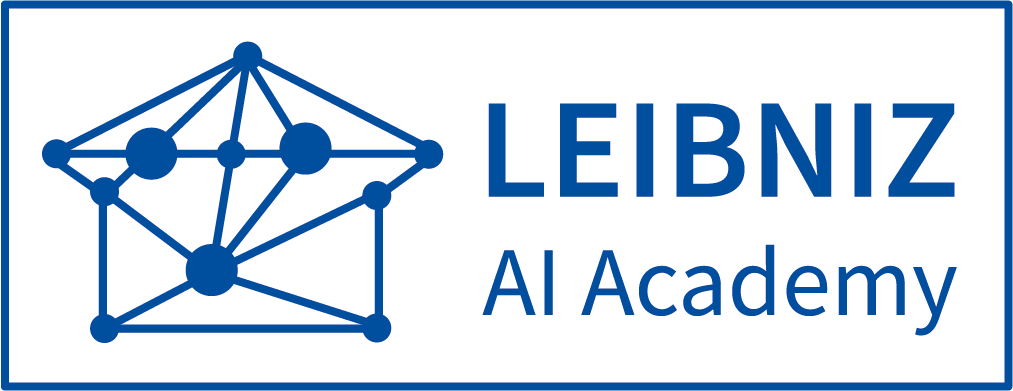General Information
-
What is a Micro Degree?
A Micro Degree offers a learning alternative to traditional training formats. Micro Degrees can help students and professionals acquire specific competencies, build skills and knowledge, and qualify them for greater responsibility in the workplace. Micro Degrees provide learners with tangible skills they can apply quickly to advance professionally. For more detailed information see https://www.zew.uni-hannover.de/de/ueber-uns/news-und-veranstaltungen/news/aktuelles-detailansicht/news/ai-micro-credentials-und-micro-degree-programme-der-luh-leitung-der-zew-ist-mitglied-in-der-zukunftswerkstatt-microcredentials-der-hrk
Unlike conventional degrees that cover broad areas of knowledge, a Micro Degree typically focuses on a speciality or specific skill and requires much less time to complete. In addition, some universities award Micro Degrees that students can count towards a bachelor's or master's degree. The flexibility that this form of further education brings with it has even led to Europe-wide initiatives for micro-credentials ( see, for example, https://education.ec.europa.eu/levels/higher-education/european-approach-to- micro credentials ).
-
Why should I pursue a Micro Degree?
A Micro Degree is generally aimed at students and professionals who want to acquire new knowledge or refresh existing knowledge - all with a flexible online schedule. The degrees are considered additional qualifications and complement previous training and experience. Students at LUH can also join courses in Micro Degree programmes.
Enrollment and Participation
-
How do I enroll?/ Do I have to enroll for Microdegree?
You do not enrol for a Micro Degree programme, but as LUH students, you register for examinations in the courses of the Micro Degree programmes using their faculty’s forms. Working professionals who wish to take examinations to obtain an LUH Micro Degree should contact ZEW (wittich@zew.uni-hannover.de).
-
Do I have to take additional courses when I’m already Computer Science student?
The advantage of Micro Degree programmes is that they are made up of modules, some of which belong to degree programmes and some of which can be taken as additional qualifications and are mutually recognised. For example, in a standard Micro Degree programme with 20 ECTS (4 courses), two courses can be part of a degree programme and two further courses can be taken in addition; you then receive the certificate for the Micro Degree programme. Please remember to register for courses in the offering faculty.
-
Can I use the courses for both my regular studies and the Micro Degree?
If the courses are part of your curriculumn, yes, they count for both. For courses from other faculties than your own, you should check with your Prüfungsamt whether you can enrol.
-
Do I have to do all the courses or can I choose just a single one?
You are free to only choose a single one. You can get a Micro Degree as confirmation of participation then. However, for our smallest Micro Degree (10 ECTS) you need at least 2 courses.
-
Are there any costs/fees I have to cover to take the program and receive the micro-degree?
The courses are free of cost, and only require you to register with the Examination Office
Certification and Course Upgrades
-
How do I get a certificate of a Micro Degree?
LUH students first register for examinations in the courses of the Micro Degree programmes and join the courses. Please keep the semester certificate in which it is noted that you have successfully completed a course that is part of the Micro Degree programme. Only when you have completed all courses belonging to the Micro Degree programme do you go to the ZEW with the certificates and receive the certificate of a Micro Degree there. For further information see https://www.zew.uni-hannover.de/en/.
-
If I already have a Micro Degree, can I upgrade it by completing further courses?
Yes, definetely!
Course Availability and Instructors
-
Are the courses already available?/When will they be available?
Most courses are already offered at the Leibniz University, but the material is not yet publicly released. Overall, we are committed to constantly update them.
-
Who conducts the courses?/How do you recruit instructors?
For each course, a propfessor is responsible.
-
I would also like to offer a course at the Leibniz AI Academy. Who do I need to contact?
Please contact Prof. Marius Lindauer
-
Can I take courses from Master's study as a Bachelor Student?
Yes, it is possible for Bachelor’s students to take Master’s level courses. However, the examination results and corresponding credits for these courses will only be officially recorded once you enroll as a Master’s student.



